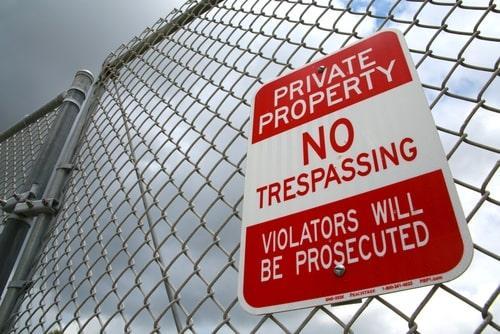Property Crimes Other Than Theft That May Be Charged in Texas
 The general category of property crimes includes offenses that involve damaging, tampering with, or stealing another person's property. While theft is one of the most common property crimes, there are other related crimes that may be charged in addition to or instead of theft. It is important for criminal defendants who have been accused of property crimes to understand the Texas laws that may apply to them, including the specific offenses they are being charged with and the potential penalties of a conviction. If you are in this situation, a criminal defense attorney can help you understand your options and provide effective representation as you defend against property crime charges.
The general category of property crimes includes offenses that involve damaging, tampering with, or stealing another person's property. While theft is one of the most common property crimes, there are other related crimes that may be charged in addition to or instead of theft. It is important for criminal defendants who have been accused of property crimes to understand the Texas laws that may apply to them, including the specific offenses they are being charged with and the potential penalties of a conviction. If you are in this situation, a criminal defense attorney can help you understand your options and provide effective representation as you defend against property crime charges.
Offenses Against Property in Texas
While many property crimes will involve stealing property or otherwise depriving the owner of the right to own and possess property that is rightfully theirs, some offenses may involve damage to property or entering property illegally. Some common charges that may apply in these situations include:
-
Trespassing - This offense, which is referred to as "criminal trespass" in Texas, involves entering or remaining on another person's property without their consent. Trespassing may take place on private or commercial property, agricultural land, in buildings, or in airplanes or other vehicles. If a person received notice that they were not allowed to enter a property (such as a "no trespassing" sign), or if they were asked to leave a property but refused to do so, they may face criminal charges. In most cases, criminal trespass is charged as a Class B misdemeanor, and a conviction may result in a sentence of up to six months in jail and a maximum fine of $2,000.
-
Criminal mischief - Commonly known as vandalism, this crime involves intentionally damaging or destroying another person's property. Examples of criminal mischief include graffiti, slashing tires, or breaking windows. Depending on the extent of the damage caused and the resulting financial losses, criminal mischief can be charged as either a misdemeanor or a felony in Texas. In cases where vandalism led to losses of less than $100, Class C misdemeanor charges will apply, and a person may face a fine of up to $500. Losses of $100 to $750 will result in Class B misdemeanor charges, and losses of $750 to $2,500 may lead to Class A misdemeanor charges, which may lead to a sentence of up to one year and a maximum $4,000 fine. Losses of more than $2,500 will result in felony charges, which can range from a state jail felony to a first degree felony.
-
Burglary - This offense may apply if a person is accused of unlawfully entering a home or other building without the consent of the owner with the intent to commit theft, assault, or any felony offense. In Texas, burglary is charged as a second degree felony if it occurred in a residential building, and a person convicted of this offense may be sentenced to two to 20 years, although if a person committed or intended to commit a felony other than theft, they may face first degree felony charges, and they could potentially be sentenced to five to 99 years. Burglary in a non-residential building is a state jail felony, and a person may be sentenced to 180 days to two years, although if a person intended to steal controlled substances from a facility such as a pharmacy or medical clinic, they may face third degree felony charges, and they could be sentenced to two to 10 years.
-
Arson - If a person is accused of starting a fire with the intention of damaging or destroying property such as a building, a vehicle, or a fence or vegetation on undeveloped land, they may be charged with a second degree felony. If arson resulted in someone's injury or death or occurred in a residence or place of worship, first degree felony charges may apply. A fire or explosion that occurred while manufacturing controlled substances such as methamphetamines may result in state jail felony charges.
Contact Our Fort Worth Property Crimes Lawyer
If you are facing property crime charges in Texas, it is important to work with an experienced criminal defense attorney who can help you understand your rights and your options for defense. At The Dameron Law Firm, our Tarrant County property crimes defense attorney can provide you with the representation you need in these situations, and we will work to ensure that you will be able to resolve your case successfully. Contact us at 817-222-0624 to arrange a free consultation.
Sources:
https://statutes.capitol.texas.gov/Docs/PE/htm/PE.28.htm
https://statutes.capitol.texas.gov/Docs/PE/htm/PE.30.htm
https://statutes.capitol.texas.gov/Docs/PE/htm/PE.12.htm

 817-222-0624
817-222-0624







